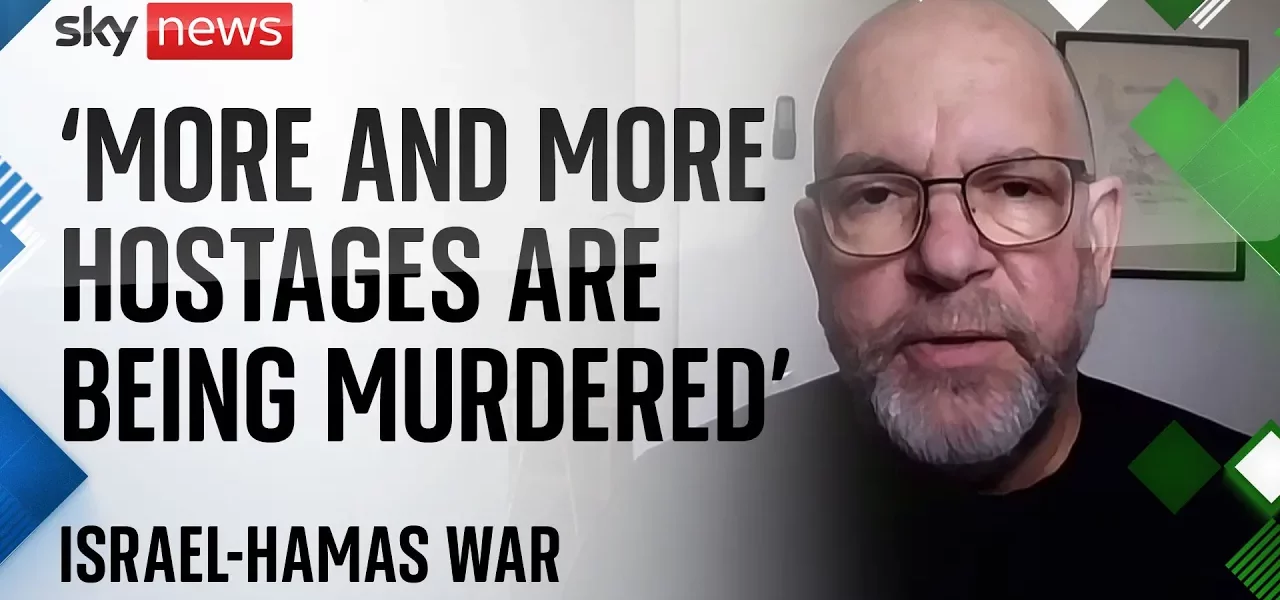Recovery of Israeli Hostages’ Bodies from Gaza: Insights from Jonathan Deal

This article explores the tragic recovery of six Israeli hostages’ bodies from Gaza, revealing the emotional toll on families and the political implications surrounding the ongoing hostage crisis. Jonathan Deal, a family member of one of the hostages, shares his thoughts on the situation and the government’s response.
Introduction
The recent confirmation by the Israel Defense Forces regarding the recovery of six Israeli hostages’ bodies from Gaza marks a heartbreaking moment in an already tragic narrative. This incident comes against the backdrop of a complex and ongoing conflict that has seen many families torn apart. The emotional and political ramifications of these recoveries are profound, as families are left grappling with grief while questioning the efficacy of governmental responses to the hostage crisis. In this article, we delve deeper into the insights shared by Jonathan Deal, whose son, Sagi, remains a hostage in Gaza, providing an intimate look into the human side of this conflict.
The Emotional Toll of Hostage Situations
The recovery of hostages’ bodies is always a painful reminder of the human cost of conflict. For families like that of Jonathan Deal, the anguish is compounded by uncertainty and fear for the loved ones still in captivity. Jonathan’s reflections provide a glimpse into the emotional landscape that many families are navigating.
Personal Accounts of Grief
Jonathan expressed his devastation upon hearing the news of the six hostages found dead, emphasizing that:
- All six hostages were confirmed to have been alive until mere days before their bodies were recovered.
- This situation adds to the grief of previously recovered hostages who were also found dead.
- The proximity of these events to his own community intensifies the emotional impact.
This highlights the pervasive fear and sorrow that families of hostages endure, as the uncertainty of their loved ones’ fates weighs heavily on their hearts.
The Role of Government in the Hostage Crisis
The Israeli government’s approach to the hostage situation has been a focal point of public discourse. According to Jonathan, the Israeli government may not be adequately addressing the needs of the families or the broader public sentiment.
Public Sentiment and Protests
There have been significant protests in Israel, with citizens demanding:
- A more robust negotiation strategy to secure the release of hostages.
- A ceasefire in Gaza to halt the violence affecting both hostages and civilians.
- Greater accountability from the government regarding its actions and policies.
Government Responses
Jonathan’s observations suggest a disconnect between the government’s actions and the public’s desires, as he notes:
- Many Israelis feel that the government is not prioritizing the safety of hostages.
- There is a growing perception that negotiations with Hamas are necessary despite the complexities involved.
- The need for a clear and humane approach to resolving the hostage crisis is evident.
The Complexity of Negotiating with Hamas
One of the most challenging aspects of the hostage situation is the nature of Hamas as both a military and ideological entity. Jonathan discusses the difficulties in eradicating such an ideology, emphasizing the need for a practical approach.
The Ideological Challenge
Jonathan, with his background as a historian, highlights that ideologies rooted in fanaticism are notoriously difficult to dismantle. He argues that:
- The primary focus should be on reducing Hamas’s governing and military capabilities.
- A negotiated settlement may provide a temporary resolution that prioritizes the safe return of hostages.
- The myth of achieving total victory over such an entrenched ideology is unrealistic and counterproductive.
Call for Action
In light of the current situation, Jonathan advocates for:
- Engagement with intermediaries who can facilitate negotiations.
- A shift in the government’s strategy to prioritize the lives of hostages over political agendas.
- A collective effort from the international community to support peace efforts in the region.
Conclusion
The recovery of the bodies of six Israeli hostages from Gaza serves as a painful reminder of the ongoing crisis affecting many families. Jonathan Deal’s insights shed light on the emotional turmoil, governmental challenges, and the complex nature of negotiating with Hamas. As the situation unfolds, it is crucial for the Israeli government to listen to the voices of its citizens and prioritize the safe return of all hostages. The need for a compassionate and strategic approach has never been more pressing. To stay updated on this evolving situation and learn more about the implications of these events, explore our related articles on hostage crises and political responses.
“`




